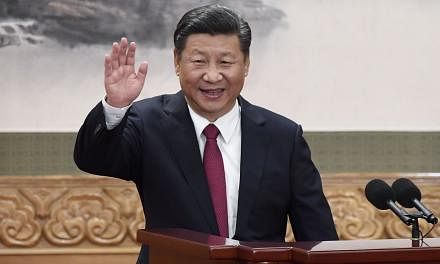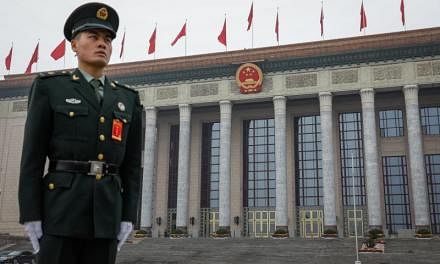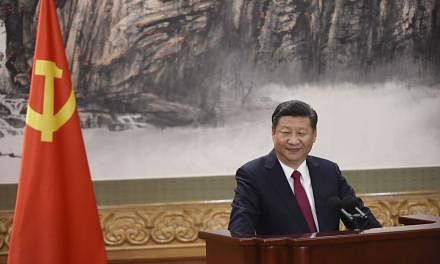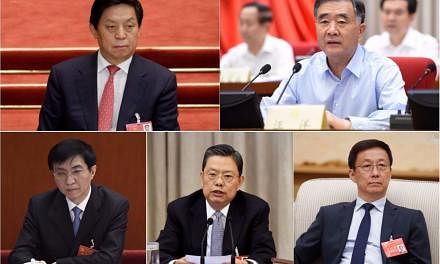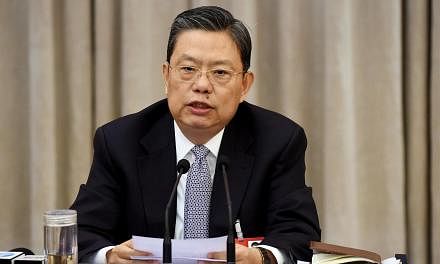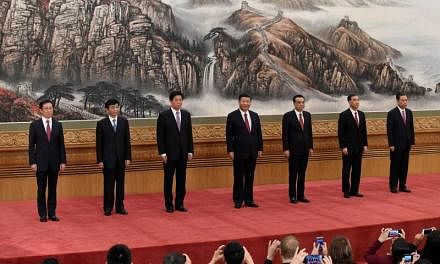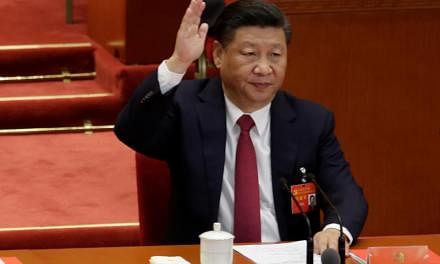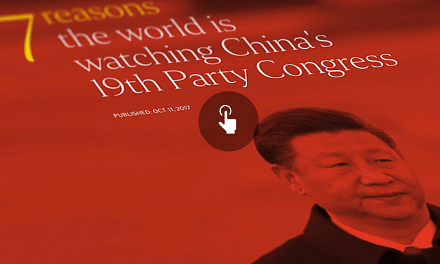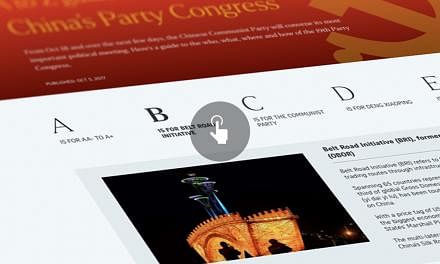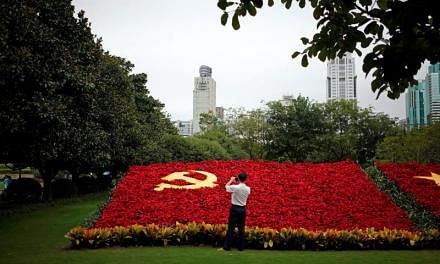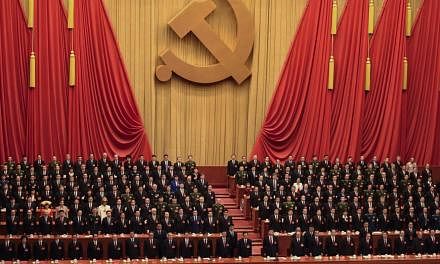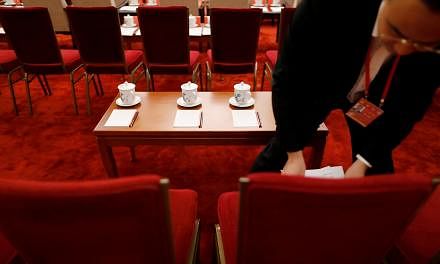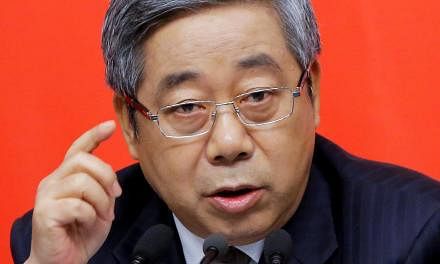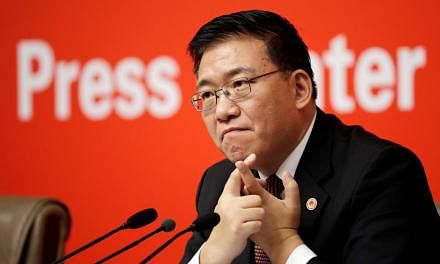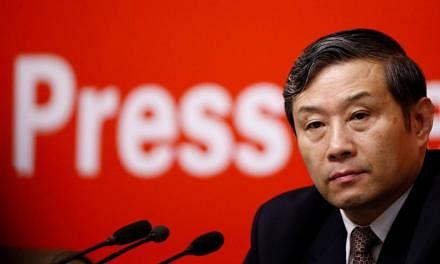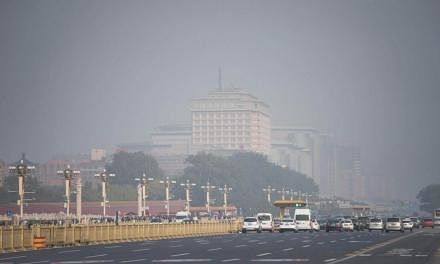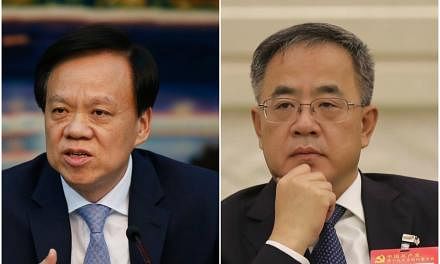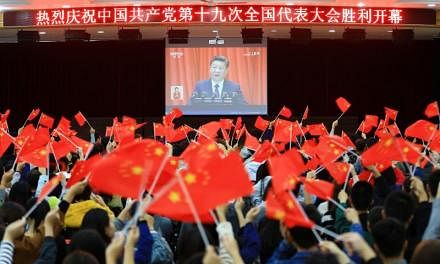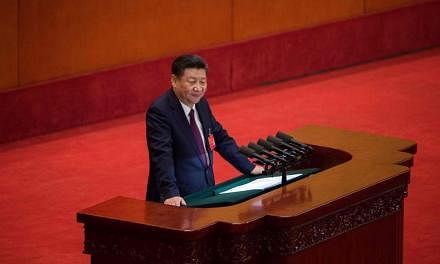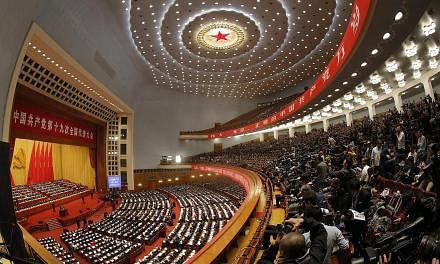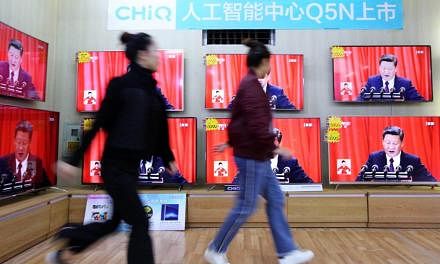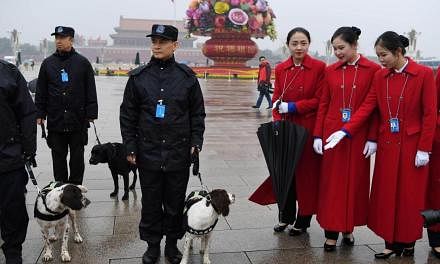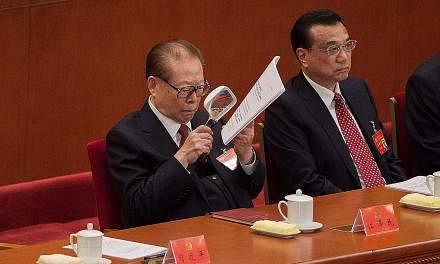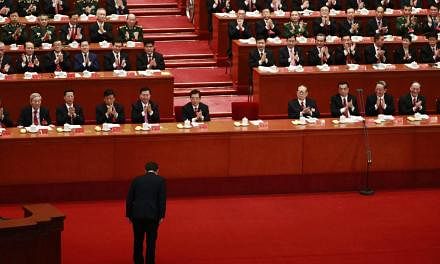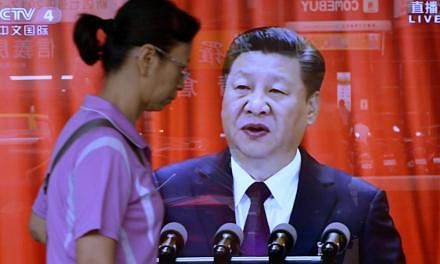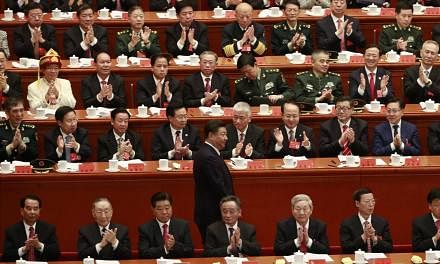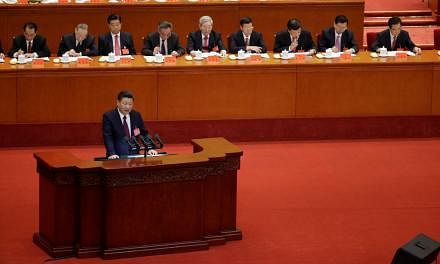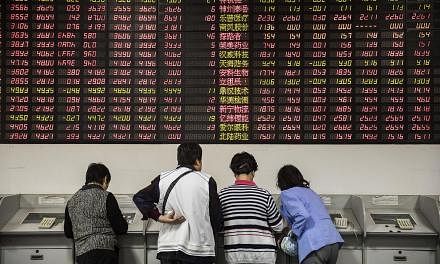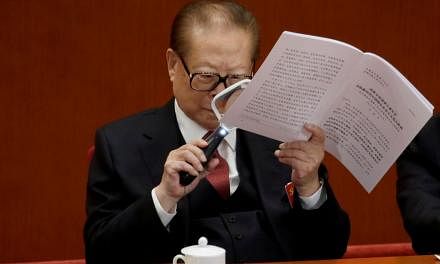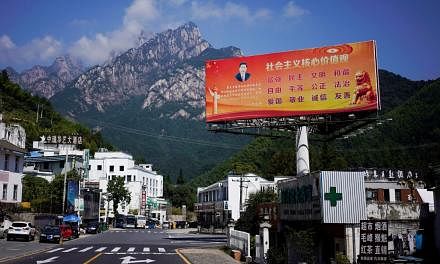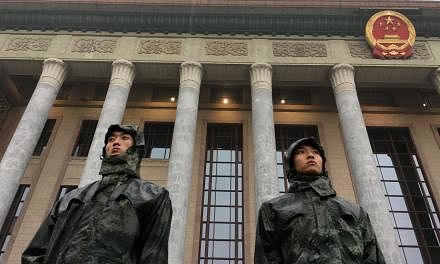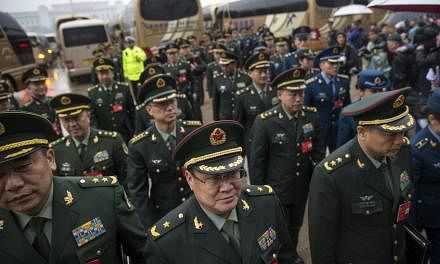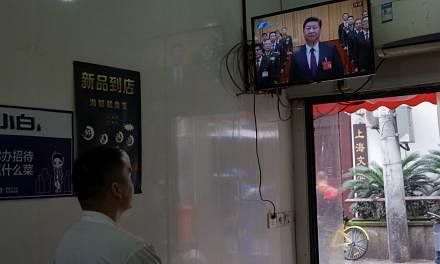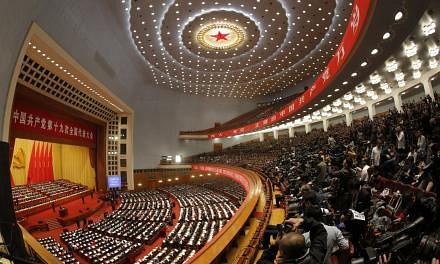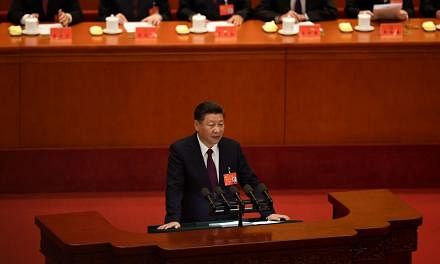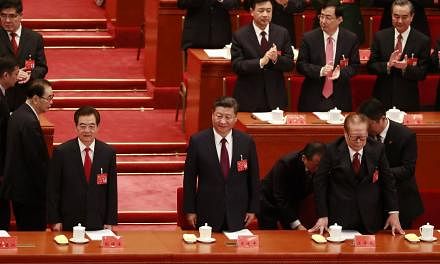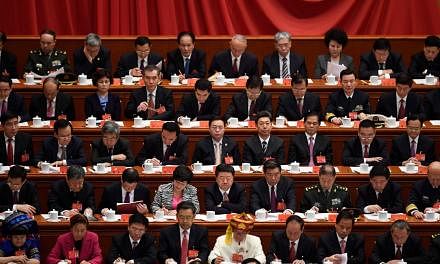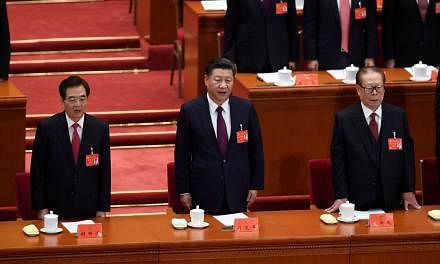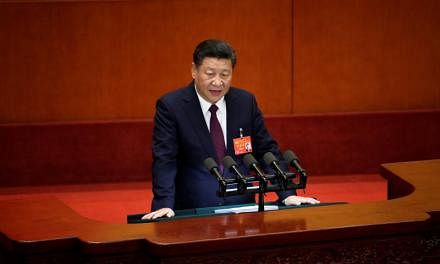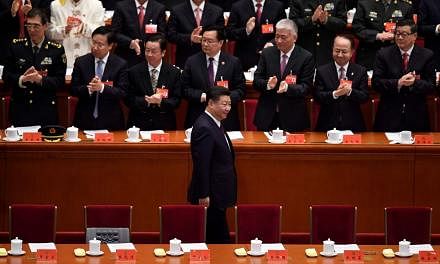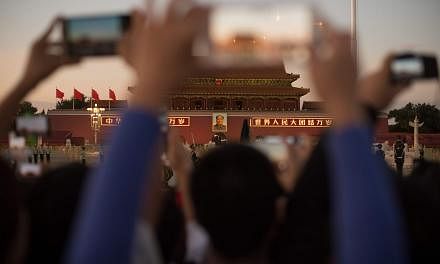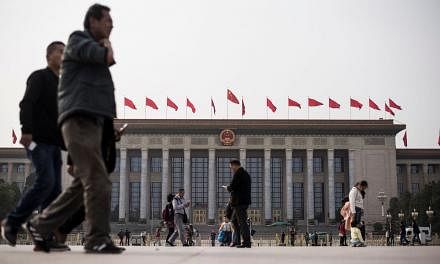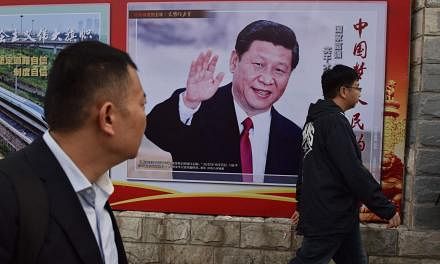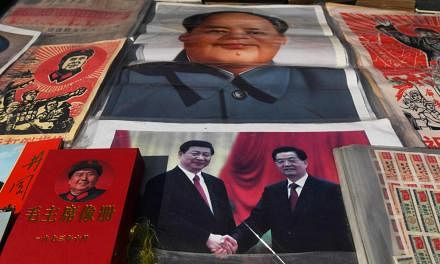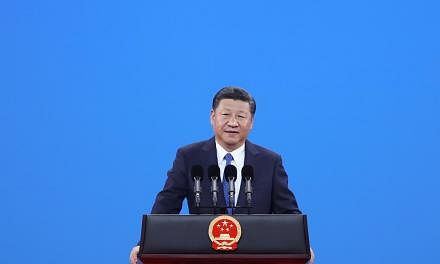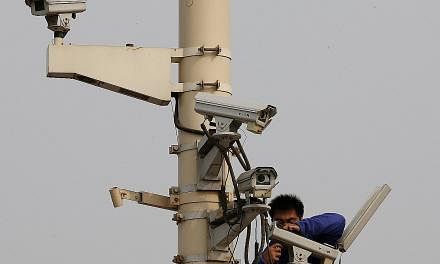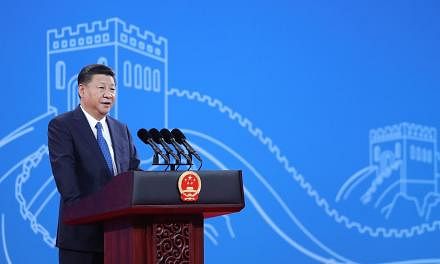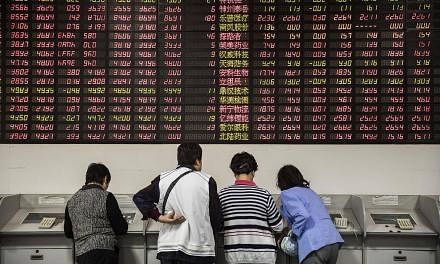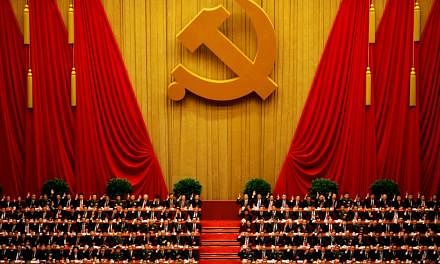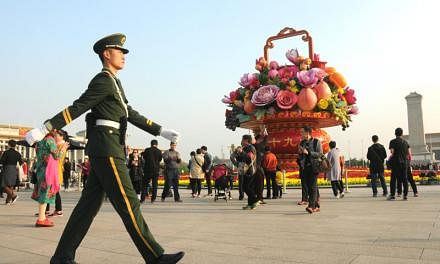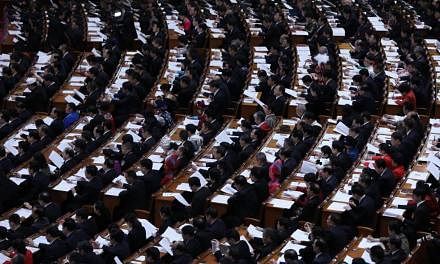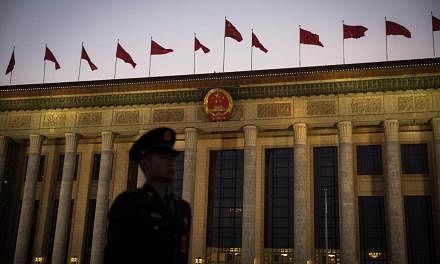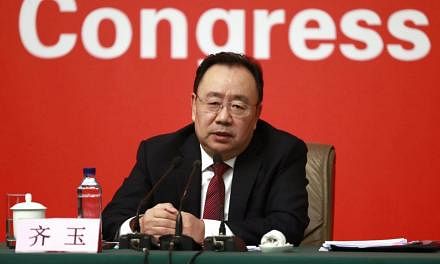BEIJING - It's official. Chinese President Xi Jinping's political thoughts have been written into the Constitution of the Chinese Communist Party (CCP), sealing his status ahead of his two immediate predecessors and Deng Xiaoping and just behind Mao Zedong.
The amendments to the party charter that were passed by the party's week-long 19th national congress at its closing on Tuesday (Oct 24) morning included Mr Xi's political thinking worded as: Xi Jinping Thought on Socialism with Chinese Characteristics for a New Era.
The amendments were passed unanimously by some 2,300 delegates present at the five-yearly meeting.
The words were placed in the charter's preamble as part of the guiding ideology of the party, coming after Marxism-Leninism, Mao Zedong Thought, Deng Xiaoping Theory, the important thought of Three Represents and the Scientific Outlook on Development.
This formulation - Xi Jinping Thought on Socialism with Chinese Characteristics for a New Era - while coming behind those of his predecessors in chronological order, carries his name unlike those of his two immediate predecessors - Mr Jiang Zemin, whose contribution is the Three Represents, and Mr Hu Jintao, whose guiding principle is the Scientific Outlook on Development.
This places Mr Xi ahead of his predecessors and Deng and just behind Mao. In the CCP lexicon, Thought is ahead of Theory in importance. However, it fell short of what some analysts believe what Mr Xi would have liked it to be - Xi Jinping Thought, placing him next to Mao and ahead of Deng.
"The formulation is most probably the result of a compromise, which is why it gets a bit unwieldy," noted Professor Steve Tsang, director of the China Institute at the School of Oriental and African Studies in London.
"Xi would almost certainly have preferred simply 'Xi Jinping Thought' but others wanted to avoid this," he added.
Hong Kong-based analyst Willy Lam said "Xi Jinping Thought" would have been too outrageous as it would have placed Mr Xi on the same plane as Mao while his contribution to the party was not of the same level as Mao's.
As for the concept of socialism with Chinese characteristics, it is not new. It was first propounded by Deng in 1984 to justify the opening up and reform that began in 1978 and which allowed the market to play a role in communist China's planned economy.
Explaining the addition of "new era" to the concept, Prof Tsang said it implies domestically that Mr Xi is asserting his authority beyond what his two predecessors had managed to do.
Mr Xi is "making himself the third path-breaking leader", after Mao who founded the People's Republic of China and Deng who started the reform period.
"Now Xi is taking China to the promised land in its own chosen path of 'Socialism with Chinese Characteristics'," added Prof Tsang.
Externally, "it marks the end of the Dengist strategy of 'hiding brightness (capabilities) and bidding for time'".
"Xi is working on the basis that China has risen and expects to play a leading role in global affairs," said Prof Tsang.
Also included in the amended constitution was Mr Xi's "Belt and Road" development initiative, the party's "absolute" leadership over the military, continuing the fight against corruption, and supply-side reforms.
"The congress holds that the leadership of the Communist Party of China is the most essential attribute of socialism with Chinese characteristics and the greatest strength of this system," the party said in a statement.
"The party exercises overall leadership over all areas of endeavour in every part of the country," it said.
Mr Xi in his political report last Wednesday at the start of the national congress had spoken about China being at a "new historic juncture" in its development.
The Chinese nation "has stood up, grown rich, and become strong; and it now embraces the brilliant prospects of rejuvenation".
Domestically, the new era will see China become a moderately prosperous society and moving on to build a modern socialist country, he said.
Externally, "it will be an era that sees China moving closer to centre stage and making greater contributions to mankind".
China will continue to play its part as a major and responsible country, he said, adding that it would "take an active part in reforming and developing the global governance system, and keep contributing Chinese wisdom and strength to global governance".


